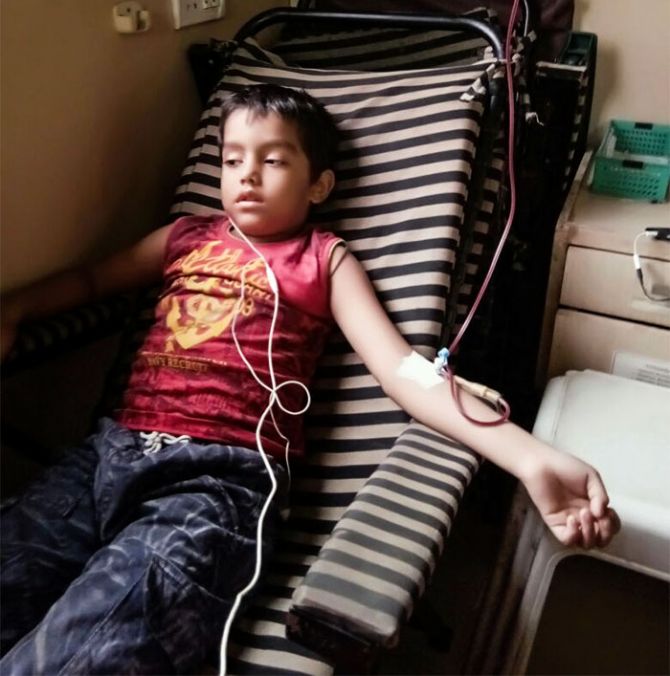Over 10,000 children are born with Thalassemia every year. Of these, 50 per cent do not survive till the age of 20 due to poverty and lack of treatment.

In simple terms, Thalassaemia is a genetic disorder associated with blood.
It is caused by the lack of or errors in genes in charge for production of haemoglobin, a protein present in the red blood cells.
“The complexity of the disease depends on the mutations involved in the genes, and their interplay. While Thalassaemia is a condition that affects millions of individuals across the world, its awareness isn't given as much of importance as the other health conditions such as cancer or diabetes” says Dr Rajni Khajuria, lab director at Igenomix.
According to the World Health Organisation, and other studies there are over four million individuals from India suffering from the disease.
It is high time to spread awareness and take appropriate actions about this disease, suggests Dr Khajuria.
Here are some facts you must know about this deadly condition.
What happens in Thalassaemia?
Thalassemia is a genetic blood disorder because of which a patient is unable to generate ample red blood cells and needs to be supplemented with RBC transfusions every 2 to 3 weeks to stay healthy and to survive.
Kinds of thalassaemia
In situations where one of the parents is a carrier, the child develops Thalassemia minor.
People with this disorder usually do not exhibit any symptoms, which makes it complex to identify.
It is thus worthwhile to get tested, in case, any of your parents or relatives have some form of a disease.
The other kinds of Thalassemia are Alpha thalassemia and Beta thalassemia.
In case of alpha thalassemia, at least one of the alpha globin genes has an abnormality. In beta thalassemia, the beta globin genes are affected. Each of the forms has sub-types, which vary in indications and rigorousness.
In case both the parents are carriers for thalassemia, they will have 25 per cent risk to have a child affected with Thalassemia.
The India story
India, ranks on top of the list when it comes to thalassaemia.
Over 10,000 children are born with the condition every year. Of these, 50 per cent do not survive till the age of 20 due to poverty and lack of treatment.
Over four million Indians are thalassemia carriers and there are more than 1,00,000 patients suffering from it.
Symptoms
Some of the common symptoms of the condition includes fatigue, weakness, bone deformities, especially in the face, pale appearance or yellow skin, slow growth rates, lowered immunity levels, iron overload and heart diseases.
A simple blood test called Hb electrophoresis / Hb A2 can indicate whether you are a carrier or have a trait of thalassemia minor.
How to prevent it
Only parents can help prevent thalassemia as it is inherited (passed from parents to children via genes).
Nevertheless, simple blood tests can help couples identify the risks of having a child with thalassemia or other genetic disorders.
This test is called Carrier Genetic test (CGT).
In cases both partners are identified as carriers of the same genetic mutation, they can seek adequate guidance from their doctors on how can they conceive a healthy baby. Screenings like Preimplantation Genetic Diagnosis (PGD) can help patients conceive a healthy baby through IVF.
What patients can do
One should pursue universal immunization to prevent exposure from infections.
It is recommended to consume food which is less on iron as the patients undergo frequent blood transfusion.
Sticking to a healthy diet and routine exercise helps to battle the disease.
The author Dr Rajni Khajuria was former researcher at AIIMS, Delhi. Dr Khajuria is currently lab director at Igenomix, Delhi, a company that provides services in reproductive genetics.











 © 2025
© 2025